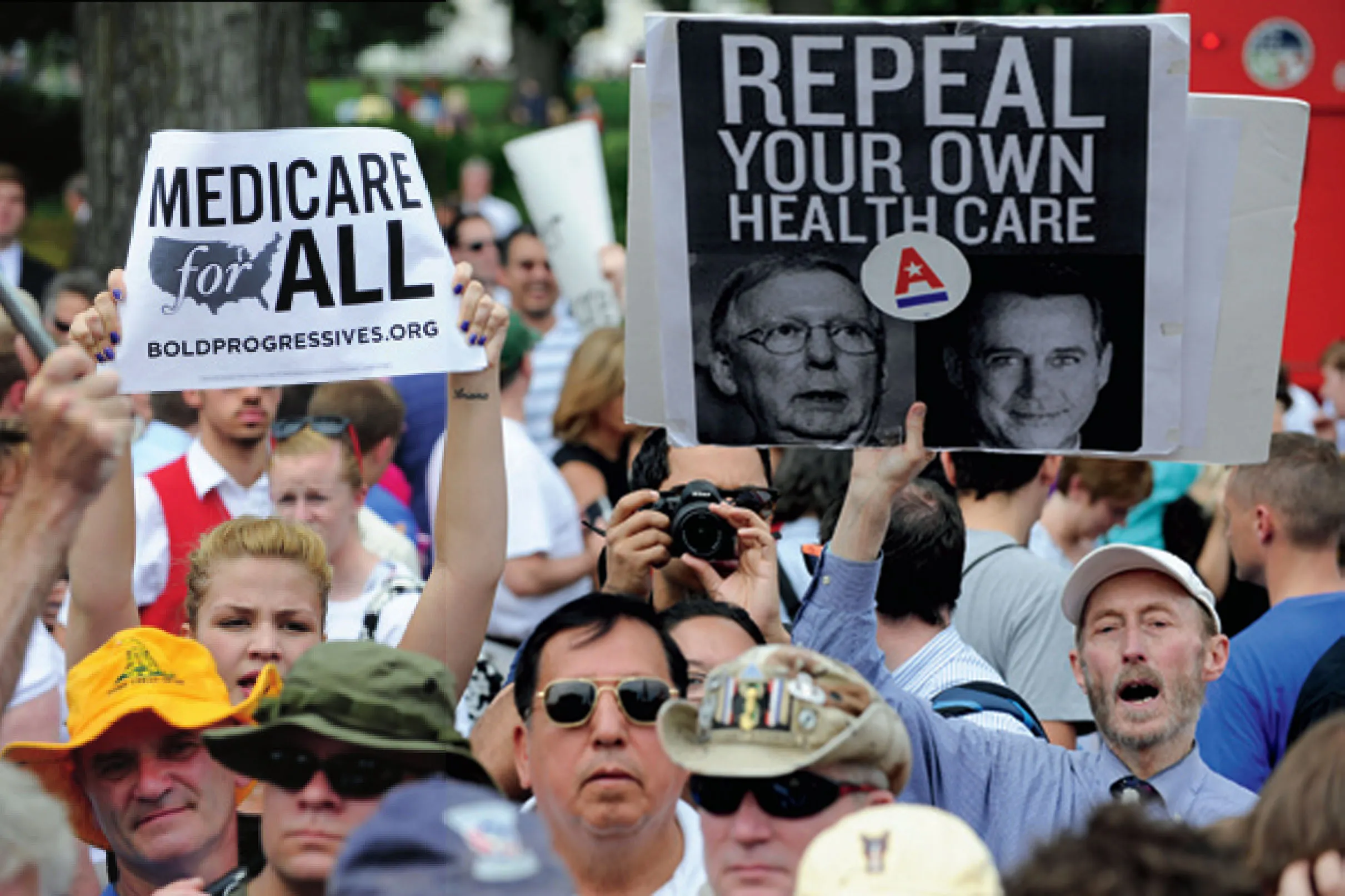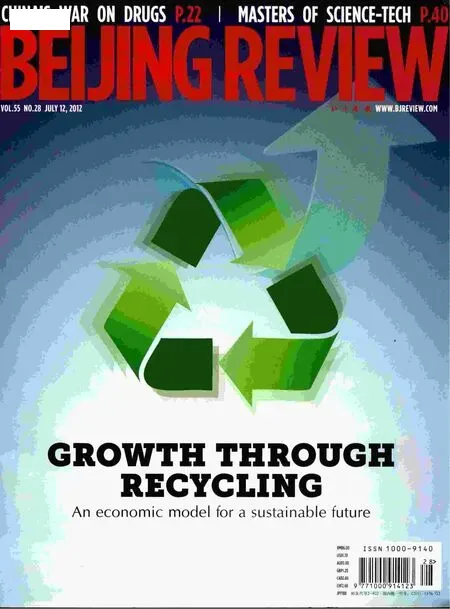The ACA And Obama’s Future
Controversies over U.S. healthcare reform continue despite green light from the Supreme Court By Ding Ying
The ACA And Obama’s Future
Controversies over U.S. healthcare reform continue despite green light from the Supreme Court By Ding Ying
U.S. President Barack Obama must have breathed a sigh of relief when the Supreme Court upheld the constitutionality of the Patient Protection and Affordable Care Act (ACA) on June 28.
The decision is good news for Obama and his campaign team. However, if he loses the election, the ACA’s future will be hard to predict.
Much-needed reform
The ACA, initially passed through Congress in 2010, is a plan to expand health insurance to more Americans. According to the U.S. Congressional Budget Office, it could potentially cover more than 30 million people who are currently uninsured in the United States.
The United States needs such a law. Statistics show that in 2010, medical insurance covered 84.7 percent of Americans, leaving at least 47.2 million Americans without medical insurance. “Such a statistic can be considered as a shame of the United States, because the country has the most developed medical industry in the world, which creates one sixth of the nation’s GDP and has spread all over the world,” said Xu Tongwu, a senior research fellow with the Institute of American Studies at the Chinese Academy of Social Sciences toBeijing Review.
The United States has an urgent need to carry out the reform. Aging baby boomers born after World War II are reaching retirement age. And the country’s healthcare spending growth is exceeding the growth rate of the country’s economy. Some Americans who don’t have medical insurance choose to go to emergency rooms, because, according to U.S. laws, hospitals cannot refuse treatment to patients in emergencies. Often patients are unable to pay for the treatment they receive, putting financial pressure on hospitals.
In fact, U.S. leaders were considering conducting a healthcare reform over 100 years ago. Xu said the idea can be traced back to Theodore Roosevelt in the early 20th century.
Because of the sluggish U.S. economy, the number of people with a low income is increasing. “The ACA benefits 10 percent of Americans, who mostly are the poorest in the country,” said Guo Xiangang, Vice President of the China Institute of International Studies.
The ACA is a big credit to Obama. Obama is fortunate to have fulfilled the goal of pushing forward the U.S. healthcare reform, which most previous Democratic presidents, like Bill Clinton, failed to do, Xu said. “This will be an important political legacy of Obama,” Xu stressed.
Stern opposition
Once the ACA is implemented, the medical insurance coverage will expand to about 95 percent of Americans. However, a recent poll showed about 49 percent of the respondents opposed the reform plan, while only 38 percent supported it.
The ACA seems to be a good plan to benefit more Americans. Why is there so much opposition? Actually, most opponents didn’t oppose the idea of expanding health insurance, but disapproved of the way to do it.
The court declared support for a key piece of the law—the individual mandate, which will become effective in 2014. The individual mandate states that all Americans must have health insurance or else pay a fine, making buying health insurance compulsory. The law makes people feel they are losing freedom to make their own choice.
Health service suppliers applauded the court’s decision, while the health insurance industry didn’t consider it as good news. Xu said although the number of insured people will increase, not every insured person has the ability to pay. Besides, according to the law, insurance companies cannot refuse an insured person even if he or she has a history of disease, which means insurers will no longer have the freedom to choose who they insure.

UNIVERSAL MEDICARE: Americans supporting the ACA attend a gathering outside the U.S. Supreme Court in Washington, D.C. on June 28
The ACA also says state governments, together with the federal government, will have the obligation to support those who cannot afford health insurance. State governments have said according to the U.S. Constitution, health insurance is the responsibility of the states, and the federal government has no right to intervene. That is why 26 states have challenged the ACA. The Supreme Court, however, limited the law’s ability to expand Medicaid, deciding that the federal government cannot withhold a state’s Medicaid money if the state doesn’t want to participate in the expansion.
Although the court also announced state governments have the right to decide their financial support to the law according to their own financing situation, growing expenses incurred by the law will be a big burden to each local government, Xu said.
Sticking to the principle of “small government,” most Republicans said the ACA violates U.S. citizens’ freedom. Xu said, “What they oppose is not the plan of expanding healthcare coverage, but the compulsory way.” Besides, he added, some of those who resisted don’t even understand what the ACA is.
In 2010, medical insurance covered 84.7 percent of Americans, leaving at least 47.2 million Americans without medical insurance
Future uncertainties
The law is declared to be constitutional, but it doesn’t mean a victory for Obama, nor the law itself. Observers pointed out that the court’s decision will sharpen political disputes between the two major parties in the United States.
Guo said the ACA will help Obama win more votes from the poor, because they will think the Democratic Party and its president are truly on their side. But the court’s decision will not only widen the social gap between the poor and the rich, but also aggravate conflicts between the Democratic Party and the Republic Party.
Xu agreed that political incompatibility in the United States will increase. He added that the decision will definitely influence the country’s upcoming presidential election. He said the presumptive Republican presidential candidate Mitt Romney has continuously attacked Obama on the ACA. Now Obama can take a breath, Xu said.
However, the Supreme Court stated that the fine is essentially a tax, which the government has the right to impose, making the result not a complete victory for Obama and the ACA. “If the future president and U.S. Congress decide to abolish the law, they can do it,” Xu said.
According to the ACA, the law will be implemented from March 2010 to 2019. Xu said if Obama wins a second term, he can finish the whole process. But giant expenses will remain as a big task in his second term.
The result rang a bell to the Republicans. They cannot abolish the law through litigation. Xu predicted that this might encourage the Republicans to try their best to win the coming presidential election and the next midterm elections, the only option for now.
(With reporting by Huang Wei in New York City)

